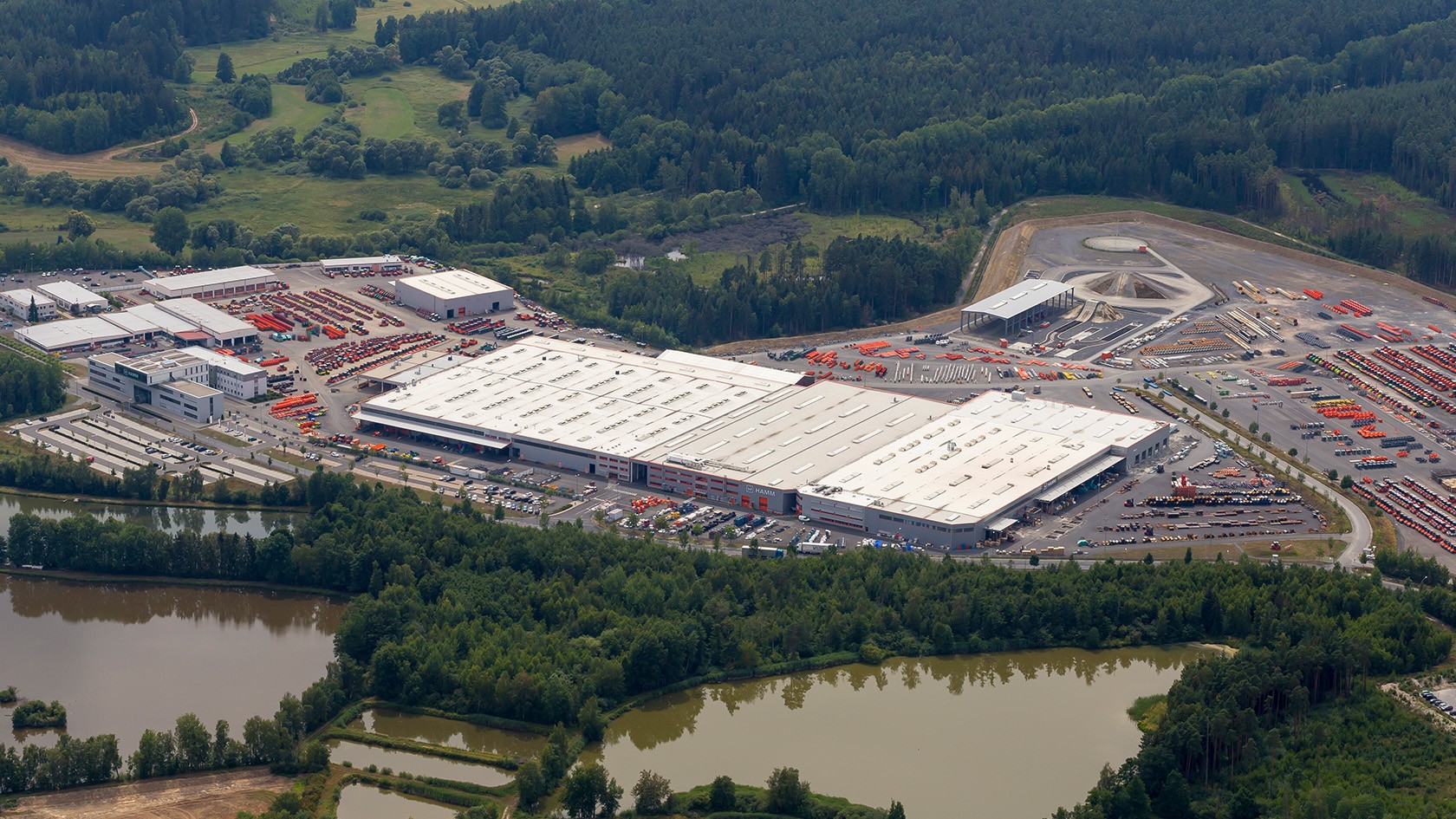Paperless production
Hamm is also endeavouring to make production paperless. The company has made great strides forward in this regard. When it comes to documentation for the machinery too, the roller manufacturer has also turned to electronic documents in lieu of paper. Customers can still request a printed instruction manual, if preferred. But with the “print on demand” scheme in place, only that which is really needed gets printed. Consequently, Hamm has been able to reduce the number of printed pages by over 60% in recent years.
Considerate handling of paints and oils – including throughout the supply chain
The paints used in production are still only low in solvent on the whole. In collaboration with the suppliers, the proportion of solvent used in the paint has also been reduced in recent years. Furthermore, paint robots and an automatic conveyor system help to keep the painting process low in solvent emissions.
Hamm is also setting high standards of its subcontractors and all companies that dispose of waste, residual paint, oils and other materials that need to be handled with care. This way, Procurement is considering the sustainability of the materials and the environmental certifications of the companies, and regularly audits the environmental measures of its suppliers and service providers.











